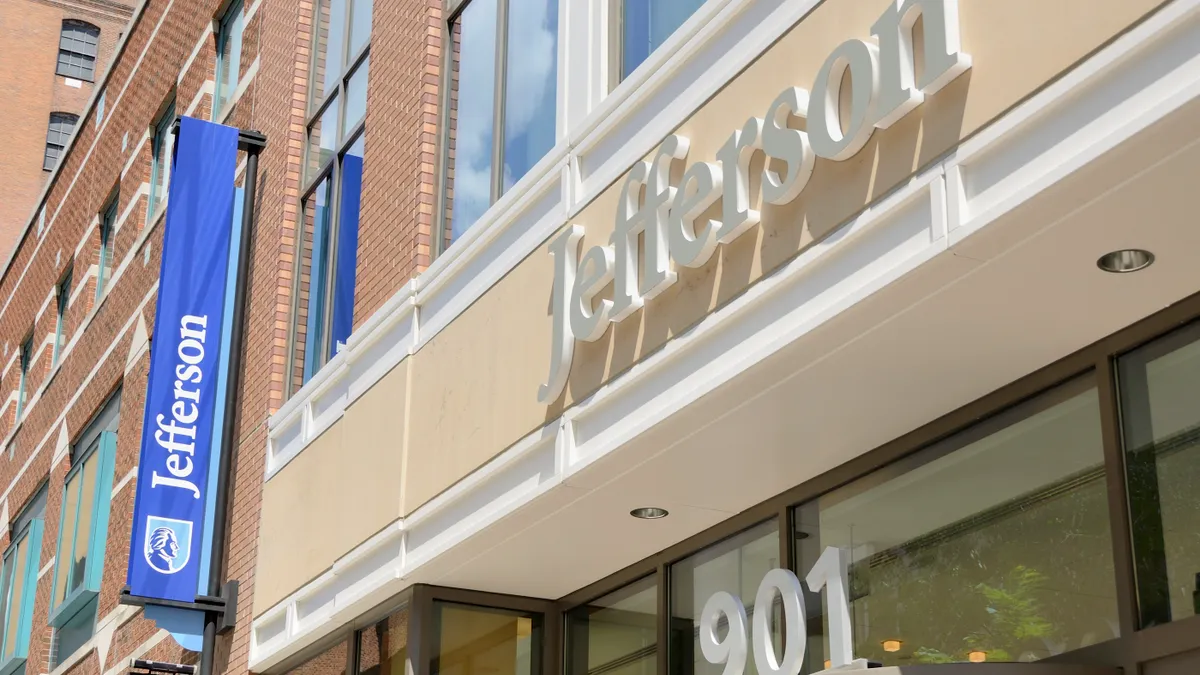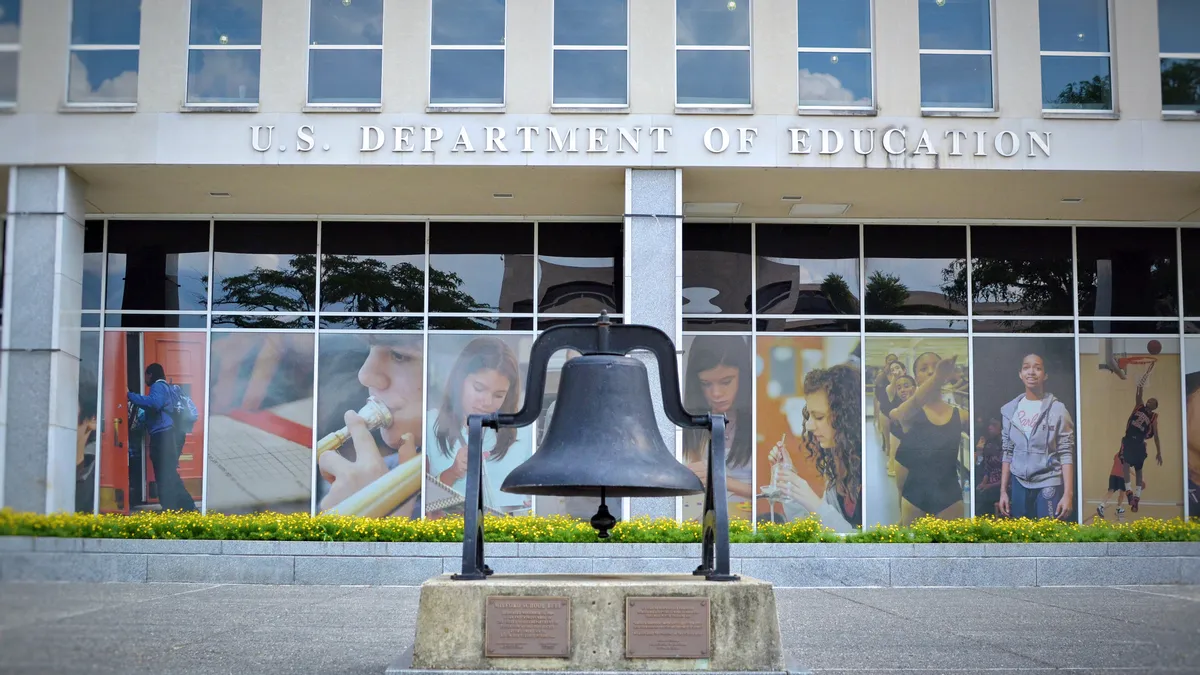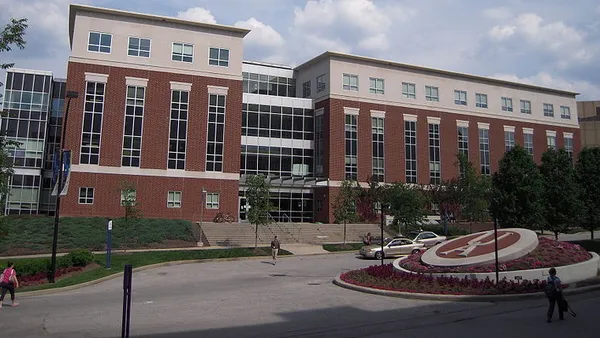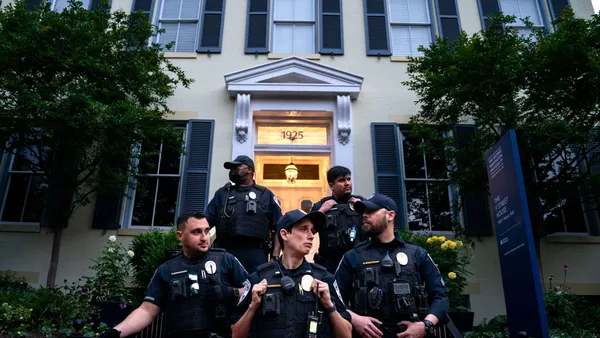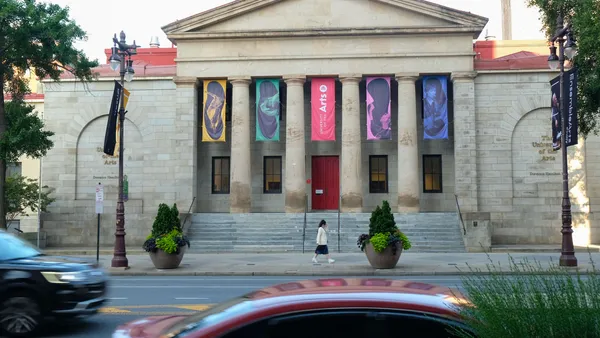Dive Brief:
-
Student-run news publications have been among the most vocal critics of colleges' reopening plans, with several writing scathing editorials deriding administrators' decisions.
-
One of the first campus publications to earn national attention for an op-ed was The Daily Tar Heel, the newspaper of the University of North Carolina at Chapel Hill. The front page of another student publication recently proclaimed: "Don't make us write obituaries."
-
Student journalists are often the first to report key developments on their campuses, in this case documenting and experiencing the effects of administrative decisions.
Dive Insight:
The Daily Tar Heel's headline, "UNC has a clusterfuck on its hands," was a biting pun that caught national media attention. At the time the post ran last week, the university had identified several "clusters" of the virus in campus housing, which it defines as five or more cases in proximity.
The positivity rate of coronavirus tests conducted among students on campus since then skyrocketed to more than 32% last week, out of a total 1,568 tests.
UNC-Chapel Hill was one of the first U.S. universities to attempt starting the fall term with face-to-face instruction, but the campus outbreaks led officials to abruptly move classes online. Observers and employees within the UNC System have lamented that its partisan governing board didn't give chancellors the leeway to shut down campuses as needed.
The Daily Tar Heel journalists wrote, however, that campus administrators were "far too eager to attribute blame to parties other than themselves," adding that UNC-Chapel Hill Chancellor Kevin Guskiewicz was far from powerless, given he was running a prominent state university with a multibillion dollar endowment.
Anna Pogarcic, The Daily Tar Heel's editor-in-chief, said in an interview the editorial was the result of months of pent-up frustration from administrators not listening to students, faculty or local officials about the dangers of reopening. She pointed to advice the local health department gave the university last month to delay in-person classes, which administrators chose to disregard.
Student journalists are uniquely positioned to cover the pandemic's effects on campuses because they are "living the stories they write," Pogarcic said.
"We have a unique obligation to … speak for the students," she said.
Other editorials followed The Daily Tar Heel's. The Observer, which covers the University of Notre Dame and the neighboring Saint Mary's and Holy Cross colleges, in Indiana, published the "obituaries" piece on Friday, following two weeks of classes and hundreds of confirmed cases on Notre Dame's campus. The prominent Catholic university has seen more than 470 positive cases since Aug. 3, as of Tuesday afternoon. It also suspended in-person undergraduate classes through at least early September.
The Observer journalists wrote that administrators had blamed the rise in cases on students attending off-campus parties, but that this was somewhat misdirected as officials were deflecting from the fact they were ill-prepared to start the fall term. Nearly two weeks passed between when students returned to Notre Dame's campus and when officials began surveillance testing, the student journalists wrote.
They called the gap "a gross oversight" by administrators that risked the health and safety of the campuses and surrounding communities.
After the editorial was published, a Notre Dame spokesperson told CNN the university understood students' concerns.
More recently, The Daily Mississippian, the student newspaper of the University of Mississippi, published an essay with the headline: "Are we ready? Hell no." Its authors cited the reversals of UNC-Chapel Hill and Notre Dame, writing that their own campus isn't following necessary health guidance.
A U of Mississippi professor died from complications of the virus in April, the journalists wrote, and coronavirus cases were already confirmed among Greek life housing.
"Blindly saying ‘We are following health and safety guidelines' is not going to keep people safe," they wrote.





